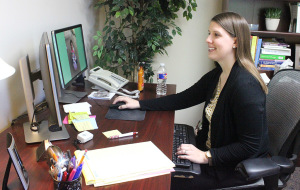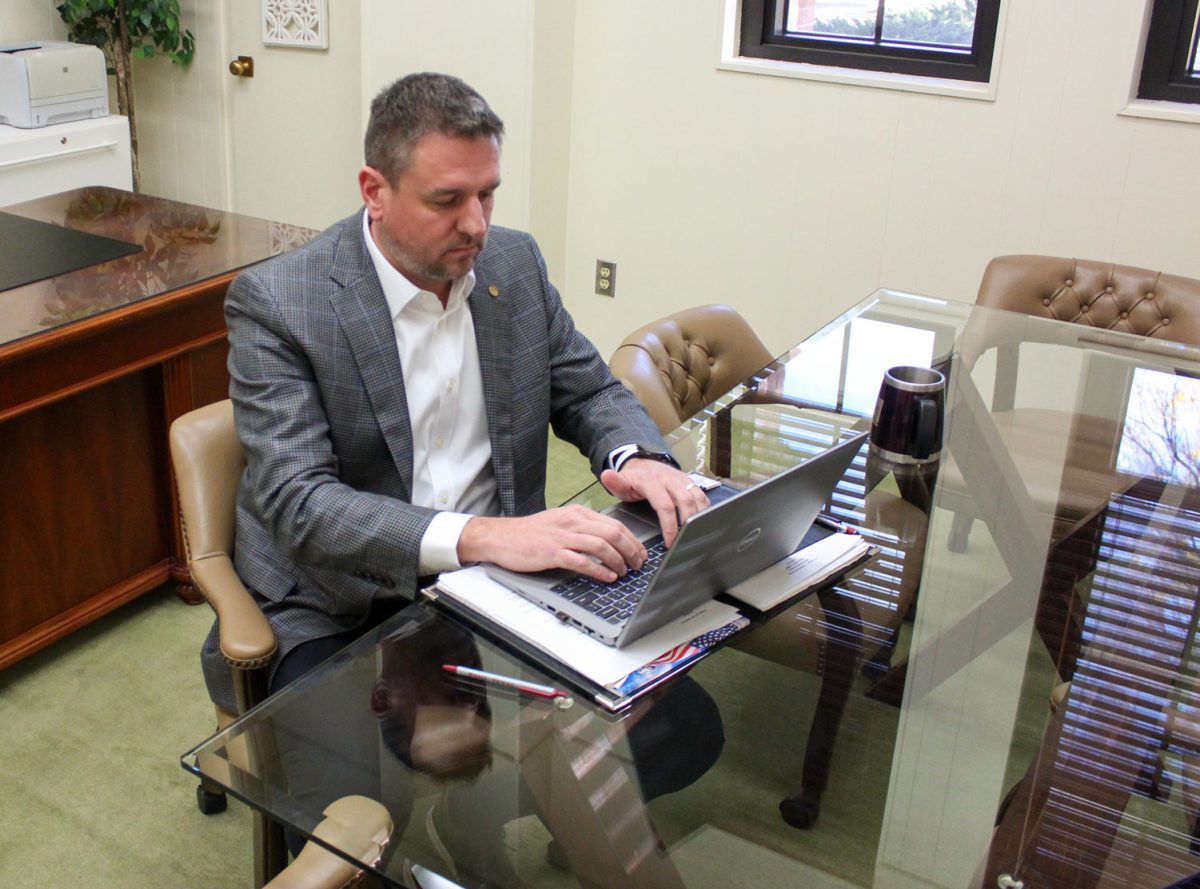
I’ve thought about suicide,” Yajaira Medellin, sophomore in social work, said. “I would probably do it with sleeping pills so it would be less pain. I have written several notes telling my family it’s not their fault. It’s not their fault because I don’t tell them. I don’t want to bother them with my depression. I would make them sad by telling them, and that only makes me feel worse.”
Suicide is a leading cause of death among college and university students in the United States, according to Suicide Prevention Resource Center, and the second leading cause of death among college students in Texas, second only to abuse of prescription drugs.
Suicidal depression is a problem some students on campus have faced.
“Depression is a prolonged period of sadness. It’s having a lack of energy or motivation, that can result in sleeping and eating problems,” Lori Arnold, counselor at Counseling Center, said. “Depression and sadness are different because depression can be anger. Not always, but everyone experiences it differently, noticing the negative more than the positive. It can be due to a number of things. School, work, relationships. It’s a change in personality and mood, not going out as much, isolated, behind on schoolwork and activity levels.”
Medellin said, “Depression is thinking about how much of a screw up I am. Feeling like I do nothing right, thinking I’m worthless and unloved.”
PROBLEM
Often, the problem students face with depression is failure, failure that affects grades, and quality of life. Teens diagnosed with depression are five times more likely to attempt suicide than adults, according to American Academy of Experts in Traumatic Stress. Even at MSU, according to an informal campus survey, about 40 percent of our students have been treated for depression.
“It’s like not wanting to get up every single morning. You think about how [crappy] the next day is gonna be and how you’re gonna mess up tomorrow,” Kenny Hall, freshman in graphic design, said.
Medellin said she has been suffering with depression for seven years. The depression comes and goes and she doesn’t know what triggers it.
“It sucks having to be in a constant battle with yourself. People feel like there’s a logical reason why you are depressed, but you can’t answer the question. Sometimes I’m sad out of nowhere and for no reason,” Medellin said.
CAUSES
Hall said, “I’ve been through counseling several times in the past. The first time I was 8 when my parents got a divorce.”
There is no single cause of depression. A person can develop it for different reasons and it may have different triggers, anything from illness, death in family, loss of job to divorce can be those triggers. And for people with depression it can be hard for them to know what their trigger is without outside help.
Medellin said, “It has gotten better on its own, but it hasn’t gone away. Before I experienced it just about every day and now it’s about twice a week. I don’t have a reason for it I don’t think. I fight the world, then fight my head and then fight people around me. Not physically, just in my own thought and I push them away.”
Since her freshman year of high school, Medellin said her depression has decreased in intensity.
Symptoms of depression include: little interest or pleasure in doing things, feeling hopeless, trouble falling asleep or sleeping too much, little energy, eating problems, feelings of failure or guilt, trouble concentrating and making decisions, thoughts that you are better off dead, or hurting yourself in some way.
Reagan Foster, counselor at Counseling Center, said, “If you are depressed, you already feel down. You already find it difficult to sleep, to be motivated to study or to go to work or put value in relationships or to take care of yourself. When we throw anxiety into that, it just exhausts us further. Those negative thoughts that we have when we’re depressed and we’re feeling down are only magnified because of the anxious feelings and the irrational thoughts.”
Forty-four percent of American college students reported feeling symptoms of depression. Sometimes all a person needs when feeling depressed is not being alone. For Medellin, the distraction of having someone by her side makes it easier for the feelings to go away.
“I do better when I am distracted. [Working out] can be helpful,” Medellin said, “But for me not as much. Some people like to go running with headphones, but being alone is the opposite of what I need. It won’t help me. I need someone next to me. Texting to say ‘I’m here if you need me’ is not enough. I need you in person. That’s what Jei does (Medellin’s boyfriend). He lets me know someone is there. He reminds me that the good days far outweigh the bad ones. That has helped me a lot.”
Kenny Hall, freshman in graphic design, has been dealing with depression longer than he can remember.
“I can’t remember a time when I wasn’t [depressed]. My dad wasn’t around much when I was little which led to my mom being committed for a week or so, and she was really depressed being she was essentially raising two kids alone and me and my sister would fight a lot. Our house was kind of somber,” Hall said.
HOW THEY CHOSE TO DEAL WITH IT
Hall said he went to counseling again when he was 14 because his dad started drinking, which later became his mechanism to deal with his depression.
“I used to drink til I passed out, to where I was stupid drunk and couldn’t think for myself,” Hall said.
Hall moved to Texas in 2011 when he joined the Air Force. He is married to his husband for a year, who also suffers from bipolar disorder.
“Me and my husband drank for eight months. But we leaned on each other to help quit,” Hall said.
Drinking is a way Medellin also chose to deal with her problems in the past.
“In high school and a little after I would drink to help ‘deal with it’. Now I still drink, but I have a boyfriend and I like to listen to Christian songs. But sometimes I feel like I’m not worthy enough for them. I would feel like, and still sometimes still feel like, it wouldn’t make a difference if I weren’t here,” Medellin said.
According to Healthline, depression and other mental illnesses can be hereditary, or because there is an imbalance of hormones. Anyone can have depression and sometimes in is indetectable.
“Sometimes they are good at hiding it,” Pam Midgett, counselor in the Counseling Center, said.
Scientists believe as much as 40 percent of those with depression can trace it to a genetically. Medellin’s father’s bipolar personality may play a role in her mental state.
Hall’s parents dealt with mental problems.
“Both of my parents have been in the psychiatric 72 hour holds. That’s when you get committed to a hospital in the mental health unit and they observe you for 72 hours or longer and give you the best treatment they can. My mom is on anti-anxiety meds and my dad drank a lot and did drugs a year before the divorce to 5 to 6 years ago so about 10 to 11 years,” Hall said.
RESOURCES AND SOLUTION
Counseling is a way to help tame issues with depressed students. According to MSU survey, about 38 percent of students go to their friends for guidance, 23 percent turn to family, almost 20 percent turn to religion and the final 20 percent turn to counseling. Of the respondents, 77 percent do not make use of the counseling on campus. Each student pays for having the Counseling Center on campus available to students whether they use it or not.
For Hall, no one needed to tell him he needed the help.
“I went by myself. [Depression] is pretty much a daily occurrence. Meds can only do so much. They can correct your brain chemistry, but you need counseling frequently. I go see my psychologist or psychiatrist weekly if not more. I take a lot of meds. Nicotine helps. Counseling, seeing friends, seeing my sister in law and her kids helps,” Hall said.
Medellin and Hall both said they prefer to not be alone when they are feeling depressed.
“Let someone you love know that constantly. You shouldn’t have to wait for a bad time to express those feelings. Be there on the bad days and the good days too. Like, how do I trust you if I don’t have a relationship with you outside of my depression?,” Medellin said.
Midgett said healthy dieting and sleeping the recommended eight hours is also helpful, but not as helpful as other things.
“You need to play to their strengths and tell them to ask themselves ‘What am I doing that is getting in the way of making my goals?’ Find what to work on. Time management is important. Leave door open for counseling. The Counseling Center works as a team, everyone has their specialty,” Midgett said.
The Counseling Center offers workshops and other programs to help students manage their time and lower their levels of anxiety.
“All groups of all characteristics have come in for counseling at MSU,” Midgett said. “Depression doesn’t fully go away every time. It’s a work in progress.”
Depression and anxiety from MWSU Campus Watch on Vimeo.
Read the rest of the mental health series articles:
Under Pressure: Anxiety is more common than you think
Suicide prevention training hits close to home
On-campus psychology clinic offers free counseling
Counselors: Nothing is off limits












